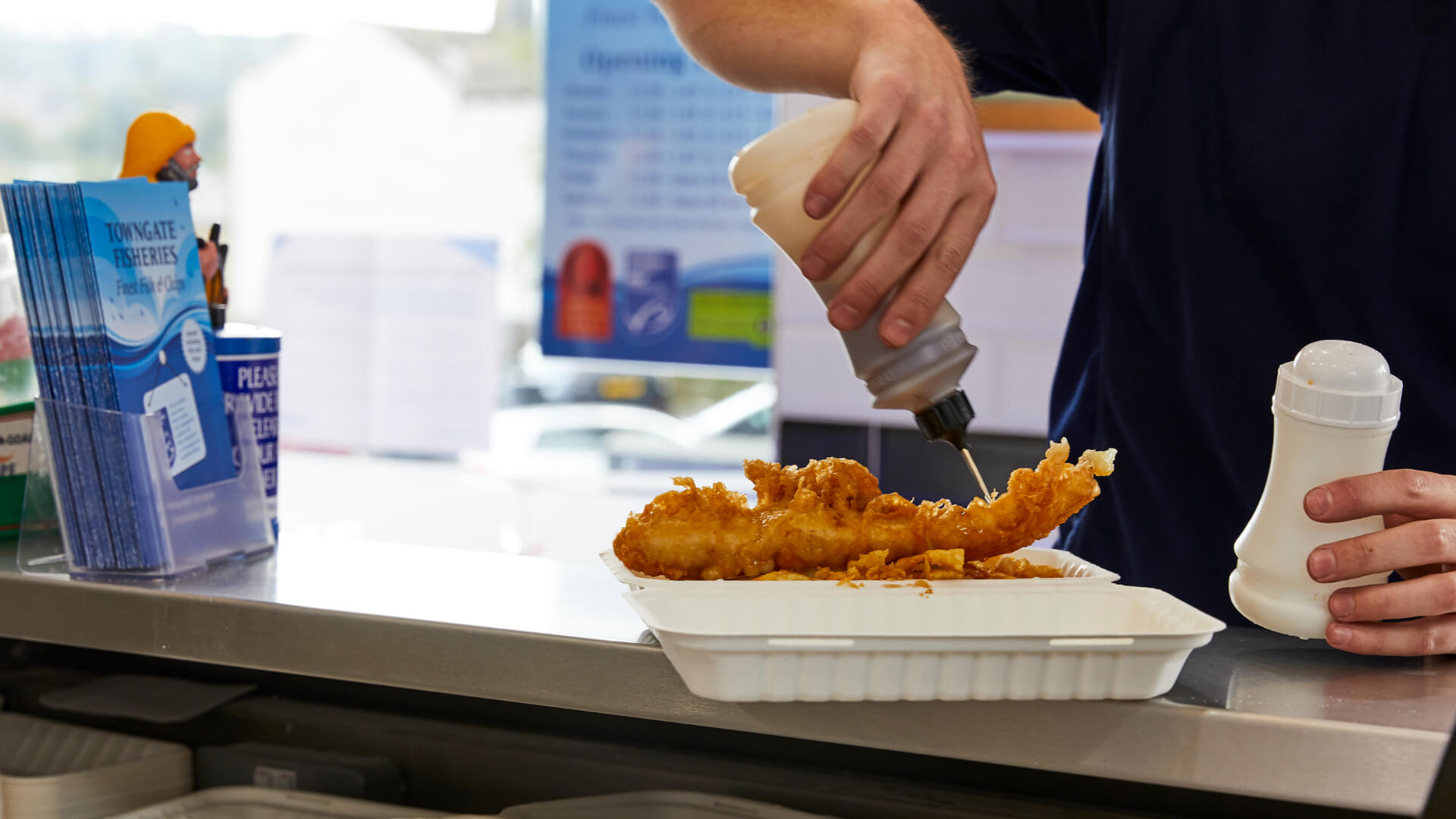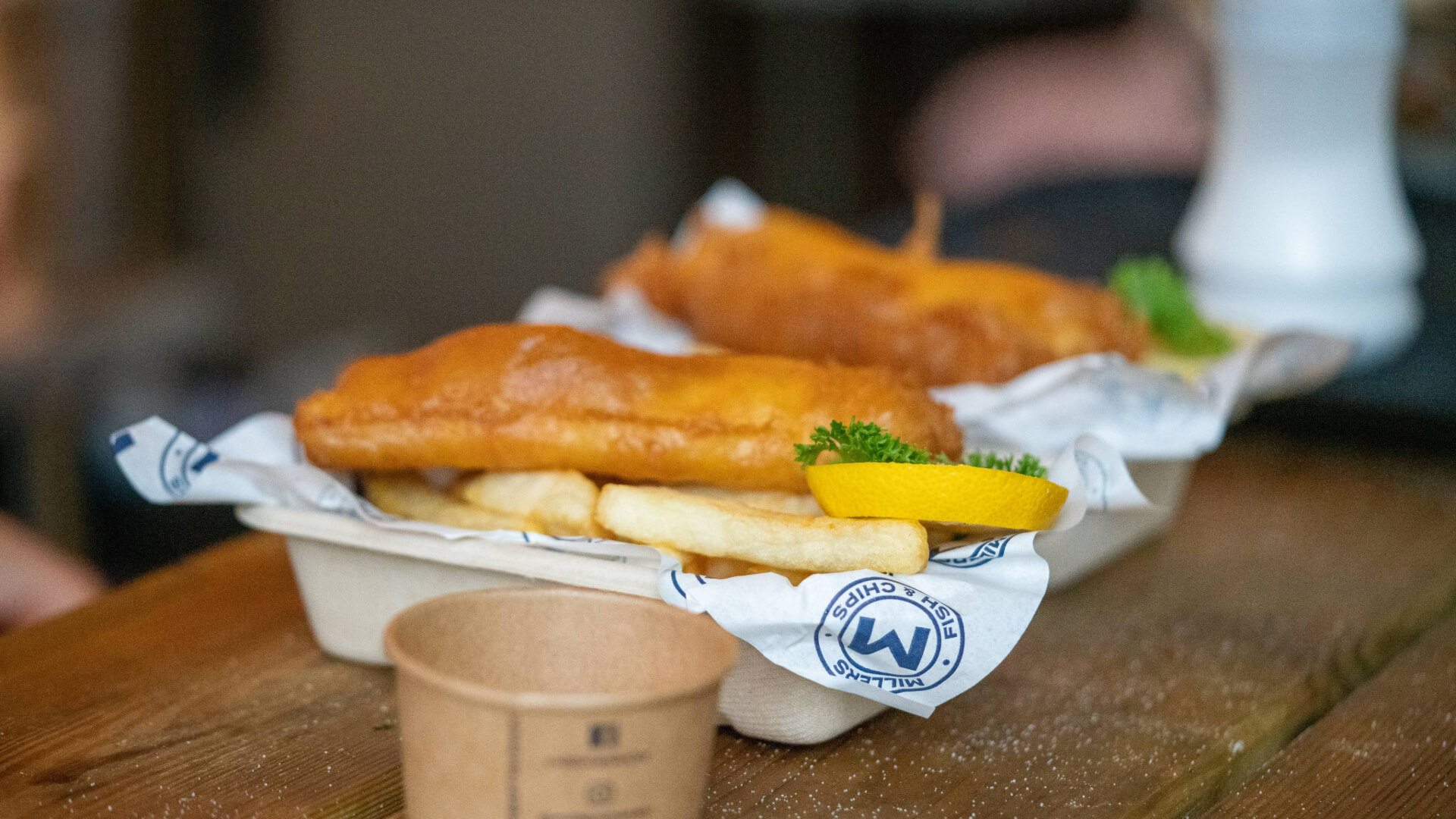Battered but Not Beaten: Why Fish & Chips Must Rise to the Challenge
Posted by Stelios on 14th Jan 2025 Reading Time:
When even a Greggs sausage roll starts to feel like a luxury, it’s clear the British economy is in deep water. But here’s the thing: while the cost-of-living crisis is squeezing the pennies from every pocket, the likes of Five Guys, Wingstop, and Popeyes are thriving. American burger and chicken chains are not only flocking to the UK—they’re booming. So, what gives?
It’s tempting to blame shrinking wallets for struggling businesses, but that explanation falls short. The truth is more nuanced and, frankly, more actionable. People aren’t just cutting back; they’re making choices. They’re willing to spend on food they perceive as great value—be it a perfectly juicy burger, crispy fried chicken, or, yes, fish and chips done right. The key isn’t just survival; it’s excellence and efficiency.
Let’s take a closer look at what’s happening. Wingstop is posting record growth, and Punch Pubs is reporting a 44% profit surge. These aren’t anomalies—they’re lessons. Consumers under financial pressure aren’t splurging indiscriminately; they’re trading cheap, uninspiring options for meals that feel worth their hard-earned cash.
Those burgers and wings aren’t cheap but consistent, well-seasoned, and served fast. People will pay for food that delivers on taste, experience, and value for money. Fish and chips can—and should—be part of this equation. But success isn’t just about frying a great piece of fish; it’s about running a smart, efficient business that meets customer expectations.
Running a fish and chip shop today means doing more with less. Have you reviewed your menu lately? If you’ve got frozen spring rolls sitting in the back freezer for eight weeks, that’s cash flow frozen, too. Slimming down the menu saves on storage costs and simplifies operations, which means faster service and less time wasted running to the farthest freezer.
Efficiency extends to staffing as well. If it takes more employees to serve fewer customers, it’s time to rethink your processes. Customer service must remain swift and friendly, but your operation needs to run like clockwork.
And don’t forget to lean on your management accounts. A good bookkeeper isn’t just a cost—it’s an investment. Staying on top of your figures lets you spot inefficiencies, track trends, and make smarter decisions. Buying in bulk? Brilliant—if you’re negotiating better deals and have the storage to handle it.
Let’s not forget the main event: the food—seasoning matters. People aren’t queuing for bland food. They want crispy and golden chips, flaky and fresh fish, and batter that crackles when they bite in. Offer them that, and they’ll pay your price.
Value for money isn’t about being cheap; it’s about giving your customers something they can’t get at home—a meal that feels like a treat, not a compromise.
The reality is grim. Costs are up, wages are tight, and everyone’s feeling the pinch. But the fish and chip industry has weathered storms before and can do so again. This isn’t about waiting for the economy to turn a corner; it’s about digging deep, working smarter, and finding opportunities amid the challenges.
The fierce competition and the market is unforgiving, but the British institution of fish and chips can rise to the occasion. The recipe for success? Great food, efficient operations, and a commitment to showing customers why your product is worth every penny.




